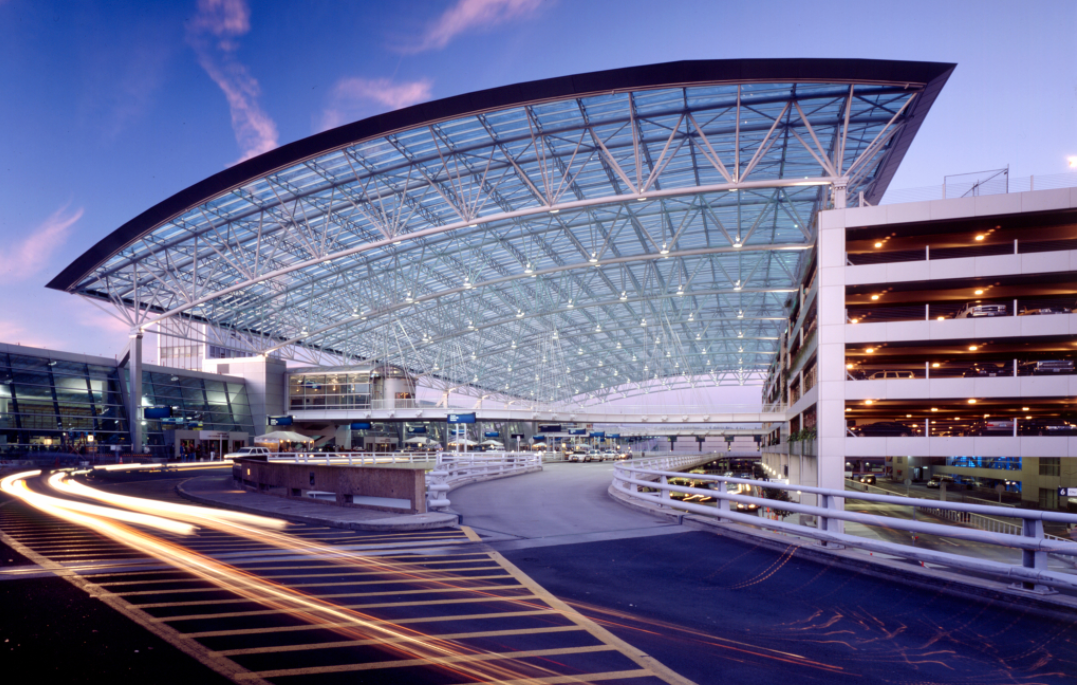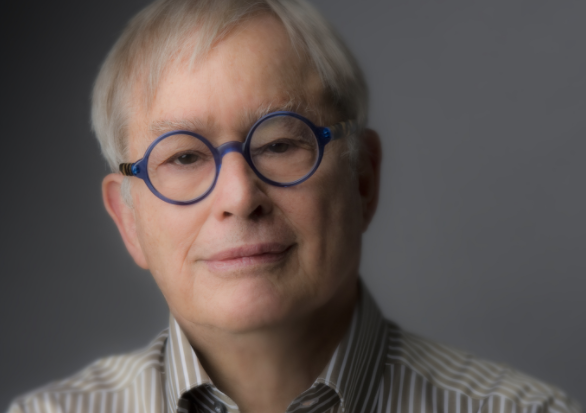ZGF Founding Design Partner, Robert Frasca, FAIA, passed away on January 3 in Portland, Ore., at the age of 84 from complications of CLL (chronic lymphocytic leukemia).
Frasca was a driving force in transforming the architectural firm from its early beginnings as a regional office into one of the nation’s largest practices, with 600 design professionals across six offices in the U.S. and Canada. Based on a portfolio of work under Frasca’s direction, ZGF was honored with the prestigious AIA Architecture Firm Award in 1991.
Encouraged by his mentor, Pietro Belluschi, Frasca arrived in Portland in 1959, equipped with a Master of City Planning from the Massachusetts Institute of Technology (1959), where Belluschi was Dean. He received his Bachelor of Architecture from the University of Michigan in 1957. He worked part time at the firm Wolff and Zimmer Architects and part time at the City Planning Commission. Several months later Frasca was awarded the George G. Booth Traveling Fellowship from the University of Michigan, given to an outstanding graduate, and traveled throughout Europe. On returning to Portland (Norm Zimmer sent him a one-way ticket), Frasca rejoined Zimmer and, along with Brooks Gunsul, formed the firm, Zimmer Gunsul Frasca (1966).
In an era when buildings were most often conceived as isolated monuments with little regard to the surrounding urban fabric, Frasca innately understood the importance of a strong and dynamic architecture to unite the entire community. He quickly became the consummate “Citizen Architect” creating notable work that ranged from civic and institutional master plans to individual buildings that elevated the quality of the built environment and the overall urban experience.
He played an important role in the evolution of Portland as a livable city and was instrumental in shaping its skyline and integrative spirit. He designed many of Portland’s most important civic projects, including Waterfront Park, Oregon Historical Society, Oregon Museum of Science and Industry, Justice Center, Oregon Convention Center, and Portland International Airport—the latter consistently ranked as one of the country’s most admired airports.
 Frasca designed many of Portland, Ore.’s most important civic projects, including the Portland International Airport. Photo courtesy ZGF
Frasca designed many of Portland, Ore.’s most important civic projects, including the Portland International Airport. Photo courtesy ZGF
He executed the master plan and designed many buildings for Reed College and for Oregon Health & Science University (OHSU), as well as the Multnomah Athletic Club, KOIN Tower, and Portland General Electric’s headquarters (now the World Trade Center).
Expanding on his integrative design approach, Frasca pioneered a holistic and humane architectural understanding of research facilities and pediatric hospitals—one that focused on occupant wellness and intellectual collaborations in the service of scientific discoveries and positive patient outcomes for the world’s most pressing diseases. He integrated nature, healing gardens, and art into his buildings long before research proved their importance. The first buildings of this type that he designed were the Vollum Institute and Doernbecher Children’s Hospital at OHSU. These buildings put ZGF on the map, and shortly other institutions were seeking their expertise. These included Children’s Hospital of Los Angeles, Children’s Hospital Colorado in Denver, Fred Hutchinson Cancer Research Center in Seattle, the National Institutes of Health in Bethesda, the Mortimer B. Zuckerman Research Center at Memorial Sloan-Kettering Cancer Center in New York City, the Dana-Farber Yawkey Cancer Institute, Center for Cancer Care in Boston, The Max Planck Institute for Neuroscience in Florida, and the Carnegie Institute for Science in Baltimore.
As his reputation grew, Frasca designed science and engineering buildings, medical school buildings, and research facilities for premier universities across the country, including the University of California-Berkeley, Cornell University, Duke University, Stanford University, Williams College, Emory University, and Johns Hopkins University. The Robert Mondavi Wine and Food Institute at the University of California Davis combined his love of wine, food, and science. These facilities always focused on the student and faculty experience using great landscape, natural light, atrium spaces, informal study and lounge areas, and places to meet serendipitously.
Working with the State Department in their Design Excellence program, Frasca designed U.S. embassies and consulates in Istanbul, Sofia, and Cape Town, South Africa. A unique project was the LDS Conference Center in Salt Lake City across Temple Square from the Mormon Tabernacle, with seating for 21,000 and a four-acre green roof garden designed with landscape architect Laurie Olin, a frequent collaborator.
He was committed to designing work that enhanced collaboration, and the team-based approach he nurtured at ZGF allowed countless young designers to grow and thrive at the firm. In addition to his practice at ZGF, Frasca shared his expertise with students and the broader profession including chairing the AIA National Honor Awards program, the AIA Committee on Design, and the AIA Topaz Awards program. He served on multiple jury selection committees, and performed peer reviews for numerous projects. He also spent 27 years on the University of Washington Architecture Commission, shaping that campus by championing other talented designers.
Frasca was born in Niagara Falls, N.Y., to parents who immigrated from Italy. He is survived by his wife, Jeanne Giordano, his children Andrea and Jason by his first marriage to Marilyn Buys (deceased in 2000), his grandson Nicolas, his sister Joyce Broderson, his nephew, David, and sister-in-law, Lorraine Giordano.
Donations in memory of Bob Frasca can be made to:
The Trustees of Columbia University
Notation: Dr. Nicole Lamanna CLL Research Gift Fund/memory of Bob Frasca
Marilyn Mullins
Senior Director of Development
Columbia University Medical Center
100 Haven Avenue, Suite 29D
New York, NY 10032
Related Stories
Cultural Facilities | Mar 26, 2024
Renovation restores century-old Brooklyn Paramount Theater to its original use
The renovation of the iconic Brooklyn Paramount Theater restored the building to its original purpose as a movie theater and music performance venue. Long Island University had acquired the venue in the 1960s and repurposed it as the school’s basketball court.
Adaptive Reuse | Mar 26, 2024
Adaptive Reuse Scorecard released to help developers assess project viability
Lamar Johnson Collaborative announced the debut of the firm’s Adaptive Reuse Scorecard, a proprietary methodology to quickly analyze the viability of converting buildings to other uses.
Security and Life Safety | Mar 26, 2024
Safeguarding our schools: Strategies to protect students and keep campuses safe
HMC Architects' PreK-12 Principal in Charge, Sherry Sajadpour, shares insights from school security experts and advisors on PreK-12 design strategies.
Green | Mar 25, 2024
Zero-carbon multifamily development designed for transactive energy
Living EmPower House, which is set to be the first zero-carbon, replicable, and equitable multifamily development designed for transactive energy, recently was awarded a $9 million Next EPIC Grant Construction Loan from the State of California.
Museums | Mar 25, 2024
Chrysler Museum of Art’s newly expanded Perry Glass Studio will display the art of glassmaking
In Norfolk, Va., the Chrysler Museum of Art’s Perry Glass Studio, an educational facility for glassmaking, will open a new addition in May. That will be followed by a renovation of the existing building scheduled for completion in December.
Sustainability | Mar 21, 2024
World’s first TRUE-certified building project completed in California
GENESIS Marina, an expansive laboratory and office campus in Brisbane, Calif., is the world’s first Total Resource Use and Efficiency (TRUE)-certified construction endeavor. The certification recognizes projects that achieve outstanding levels of resource efficiency through waste reduction, reuse, and recycling practices.
Office Buildings | Mar 21, 2024
Corporate carbon reduction pledges will have big impact on office market
Corporate carbon reduction commitments will have a significant impact on office leasing over the next few years. Businesses that have pledged to reduce their organization’s impact on climate change must ensure their next lease allows them to show material progress on their goals, according to a report by JLL.
Adaptive Reuse | Mar 21, 2024
Massachusetts launches program to spur office-to-residential conversions statewide
Massachusetts Gov. Maura Healey recently launched a program to help cities across the state identify underused office buildings that are best suited for residential conversions.
Legislation | Mar 21, 2024
Bill would mandate solar panels on public buildings in New York City
A recently introduced bill in the New York City Council would mandate solar panel installations on the roofs of all city-owned buildings. The legislation would require 100 MW of solar photovoltaic systems be installed on public buildings by the end of 2025.

















